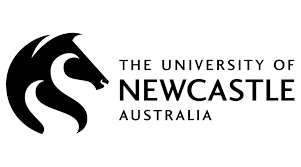University of Newcastle: Exploitation of migrant workers highlights systemic issue across Australia
Migrants and refugees currently working in the Hunter region face a range of complex challenges, including wage theft.
Dr Justin Ellis, lead author and criminologist from the University of Newcastle’s Centre for Law and Social Justice said his team’s findings pointed to a systemic issue across Australia. Dr Ellis found that these new locals faced a lack of access to secure employment, which made them particularly vulnerable to exploitation.
The research was a collaboration between University of Newcastle and Australian Catholic Religious Against Trafficking in Humans (ACRATH).
“The issues we are seeing at the local level in the Hunter region are also occurring at a national level,” Dr Ellis said.
“Our research found that while wage theft is systemic across industries and demographics, migrant workers are particularly vulnerable,” Dr Ellis said.
“For example, they’re particularly vulnerable due to factors like access to secure employment, unrecognised qualifications, low English literacy, access to affordable quality housing and lack of access to in-country knowledge about workers’ rights and conditions.”
The researchers found these factors can lead to a spectrum of exploitation including an underpayment of wages and superannuation; ambiguity over leave entitlements; inconsistent pay rates across sector sites through labour hire companies; coercion – threats of cancellation of visas; lack of access to legal representation and justice, and delays in processing of applications for permanent residency.
Dr Ellis said the increase of climate-related catastrophes would also disproportionately affect migrant workers and refugees due to the location, quality, and condition of their housing, which made them more vulnerable to dislocation.
In-depth interviews with union representatives, lawyers, activists, and people who work with or have knowledge of migrant workers in the Hunter, such as non-government organisations, were conducted for the research.
Education campaigns for workers key to addressing exploitation
This work is the first comprehensive investigation into the exploitation of vulnerable workers in the Hunter region. It found the industries where this has occurred included agriculture (farm labour, fruit picking, grape picking), hospitality (food and beverage, cleaning), meat processing and house painting.
Wage theft and other forms of underpayment is a major issue affecting these workers.
The Newcastle-Hunter region is the seventh largest area by population in Australia and features sectors such as agriculture and hospitality, known to have seen pre-COVID increase in offences of worker exploitation.
Dr Ellis said despite changes in migration demographics since the pandemic, lack of awareness of worker rights remained a major issue.
“Prior to the pandemic we had more workers from China and Taiwan than we do at the moment. The barriers they faced included a lack of English fluency which made them vulnerable to exploitative conditions as they were unaware of their rights,” Dr Ellis said.
“Now, South Pacific Islanders represent the biggest group of migrant workers – they might have greater English literacy, but are still not fully aware of their rights.
“Migrant workers in regional areas like the Newcastle-Hunter region also have fewer resources in their own languages and smaller communities from country of origin to draw from than in larger metropolitan cities, making them even more vulnerable.”
“Respondents noted that we need to see education campaigns in worker languages as well as English to ensure they have a greater awareness of their rights pre-departure and upon arrival in Australia, and we need to see more political engagement to address this exploitation,” Dr Ellis said.

